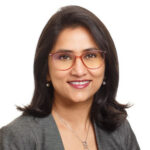Breastfeeding After Breast Augmentation: Factors to Consider

Whether you are already a mother considering a breast augmentation surgery or would like kids in the future, you may have questions about breast feeding with a breast augmentation. This is one of the most frequently asked questions that board-certified plastic surgeon Dr. Fichadia gets from her patients considering breast augmentation. The answer is most likely yes, with the following considerations.
Considerations When Wanting to Breastfeed with Implants
There are several different factors that you will need to consider when breastfeeding after having implants. These include:
Incisions
You will need to look to see where your incisions were made. If they go around your nipples and areolae, you may not be able to produce milk. With this kind of incision, nerves and milk ducts can possibly be severed. If you have incisions that are within the breast fold, away from the nipple, you should not have any issues with nerve or milk duct damage, and you will be able to breastfeed successfully.
Reason for Augmentation
The other thing to consider is the reason for augmentation surgery. If you have fairly symmetrical, regularly shaped breasts and you just wanted a little boost, then chances are you will not run into difficulty breastfeeding. But, if you have very flat or tubular shaped breasts before your augmentation, you may have been at risk for low milk supply due to insufficient glandular tissue regardless of having surgery. Some breasts don’t develop properly during puberty and therefore don’t contain enough glandular tissue to produce the necessary breastmilk.
If you are still uncertain whether or not you can breastfeed after getting breast implants, speak with your obstetrician and Dr. Hetal Fichadia, MD, FACS, to see what they recommend.
Implant Location
In conclusion, most women are able to successfully breastfeed their babies after breast augmentation. However, for a variety of reasons—some implant-related and some not—breastfeeding may not always be feasible. Conservatively-sized implants placed below muscle through an incision away from the nipple-areola are least likely to interfere with breastfeeding.
Tips for Breastfeeding with Breast Implants
For women starting their motherhood journey, once you have spoken with your doctors and found whether or not it is possible to breastfeed, your next course of action is to meet with a lactation consultant. A lactation consultant will be your biggest ally when it comes to breastfeeding. This consultant will be able to tell you ways to increase your milk production and have a successful time at breastfeeding with breast implants.
If you struggle to breastfeed or you have further questions about breastfeeding when having implants, you can speak to your lactation consultant and your doctor to determine the best course of action for you. Having a strong support system can help you to succeed at your goals of breastfeeding.
You may also worry about the effect breastfeeding will have on your implants. It’s normal for your breasts to change in shape and size during pregnancy and after breastfeeding. Breastfeeding won’t affect your implants, but the size and shape of your breasts overall may be different. Dr Fichadia is always available to answer your questions as you go through these life changes after your breast augmentation surgery.
Contact Dr. Fichadia
If you are interested in or have questions about breast augmentation and the results of a procedure like this, contact our office, located in Portland, OR to get a professional opinion from Dr. Fichadia. Call or fill out our online contact form to schedule a consultation today.
Dr. Fichadia is a double board-certified, comprehensively trained plastic and reconstructive surgeon. She completed general surgical training at St Elizabeth’s Medical Center, an affiliate of Tufts University School of Medicine in Boston, MA, and subsequently completed a highly competitive plastic surgery program at Oregon Health and Science University in Portland, OR. She has presented research from her time in Boston and Portland at national and international surgical meetings such as Clinical Congress of the American College of Surgeons and annual meeting of American Society of Plastic Surgery.
 (503) 488-2344
(503) 488-2344





